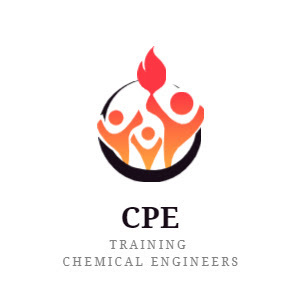After a gap back with a basic post, as i've received some queries about the types of validations, writing it here today.
I think many of the rookie engineers who join pharma will come across this word "Validation", and by the time they would like to change an organisation, the common thing they google is,
"What is Validation ? & What are the types of validations ?".
I know this because i came across this phase once and i tried my best to remember the definitions available on google a lot, but unfortunately i haven't asked this question during interview. Anyhow while trying to remember the definitions, i found it very much difficult as i can't understand those much since by that time i don't have enough experience in validations.
This post is dedicated for those who are in such a phase and searching for some easily understandable relevant content. Let me explain these simply with some example,
So my request for the readers is 'if you really want to understand what these types with some detailed example, please proceed, else if you are interested in only definitions, i'm sorry for making you starve'.
What is meant by Validation ?
Validation is a process of proving the consistency of a procedure i.e., it can be a manufacturing process in pharma industry.
The consistency shall be proved w.r.t. quality that is pre-determined / pre-specified and if the process is a from R&D then it is not mandatory to prove the consistency w.r.t. output quantity.
But if the process is a scale-up from small scale to large scale, then it will be better to prove the consistency w.r.t. quantity too.
What are the stages of Process Validation ?
There will be three stages in Process Validation, i.e.,
1. Process Design,
2. Process Qualification,
3. Continued Process Verification, simply CPV.
Stage - 1: Process Design shall be done in R&D through literature survey and conducting experiments
Stage - 2: Process Qualification is the stage where the reproducibility shall be checked, i.e., simply executing minimum three batches to show the consistency w.r.t. quality.
Stage - 3: Continued process verification, is nothing but study of data and ensuring process is in control.
Now, let me explain the types of validation with an example.
What are the types of Validations ?
There are four types of validations,
1. Prospective Validation,
2. Retrospective Validation,
3. Concurrent Validation,
4. Revalidation.
Prospective Validation: This is first time validation of a intermediate / API before launching into market.
Concurrent Validation: This type of validation is used only for monitoring the critical steps and end product quality. Usually reprocess / rework of a product shall be considered as Concurrent Validation.
Revalidation: The name itself makes some sense as revalidation is performed in case of,
a. Product transfer from plant to plant internally,
b. To check reproducibility periodically,
c. Drastic scale-up / scale-down in batch size,
d. Series of failures reported,
e. Major changes done as a part of improvement.
Retrospective Validation: Retrospective Validation is ensuring consistency through evaluation of data from commercial manufacturing. This is abolished and in-place of the retrospective, currently CPV (Continuous Process Verification) were performed.
Now, let's take an example to understand when these types are really used.
Lets say a product Remedesvir is new molecule which is developed in R&D and the process is completely designed and a set of validations were executed in lab to check the consistency and it is found okay. Now we need to execute in plant scale.
Prospective Validation: For the first time if it is executed in plant scale (Commercial) to prove the consistency w.r.t. quality, then it is said to be Prospective.
Concurrent Validation: Product is commercialised after prospective validation. Some failures were reported in quality and there is a developed reprocess procedure for the material, then we need to validate the reprocess / rework route, then it would be termed as Concurrent Validation.
Revalidation: There is a scale-up from say 20 Kg to 200 Kg, then the scale up ratio is 10, so it have to undergo Revalidation. Or there is some scope for yield / quality improvement and for that we need lot many changes, then we have to go with revalidation to prove the consistency.
Anyhow the scalp ratio will vary from company to company and their predefined SOP's.
Retrospective Validation: This is where many of us might get confused if we lack experience. Lets say Remedesvir product is a commercialised and there were ~30 batches executed and the data of all the batches shall be collected and the various quality parameters shall be compared through graphical representation simply we'll use normalised distribution for these and the graph symmetry shall be observed, if the graph is symmetric then the process is in control.
If there is some skewness observed then it might be attributed by some changes. These variations are classified into two categories i.e., Common Cause Variations & Special Cause Variations.
If there is more skewness, then it means that there is a special cause behind, if there is mild skew , then it might be due to common cause which shall be addressed through continuous improvement.
That's it ....!!
Hope the post is self explanatory and readers won't have any queries further,
If any feel free to contact me / Comment below ....!!
Comments are most appreciated .....!!
Is the post Self explanatory ?
Created with QuizMaker





 Hi! I am Ajay Kumar Kalva, owner of this site, a tech geek by passion, and a chemical process engineer by profession, i'm interested in writing articles regarding technology, hacking and pharma technology.
Hi! I am Ajay Kumar Kalva, owner of this site, a tech geek by passion, and a chemical process engineer by profession, i'm interested in writing articles regarding technology, hacking and pharma technology. 
No comments:
Post a Comment